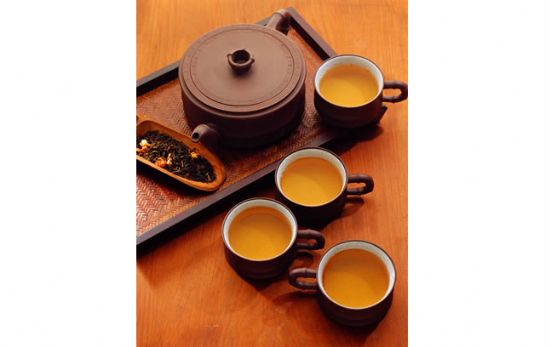Does tea have the effect of nourishing the stomach?
In our lives, when many of us drink tea, we are saying, “Listen to people saying that they have tea and stomach.†When asked to hear who said it, none of them could answer it. It was forced to say that it was those who sold tea. To tell the truth, China's tea traders have been igniting the effects of tea many times. The most terrifying thing is bragging that tea can cure AIDS. So shameless, only tea traders can speak for export. Today, what I mainly talk about is whether tea has the effect of raising stomach. The answer is: It does not have tea in all parts of the world and it is impossible to have stomach-enhanced tea. Just to see the degree of damage to the stomach, or that the injury is light and heavy. Recently, selling black tea said that black tea has its stomach, and selling Pu'er tea makes money, saying that Pu'er tea has its stomach. These are irresponsible marketing. As long as it is tea, it is impossible to raise the stomach. It is only different degrees of hurting the stomach. To illustrate this issue, we must first clarify whether the ingredients of stomach and tea are the same. Stomach, mainly used to grind large pieces of food into small pieces (also known as physical digestion), and the macromolecules in food are degraded into smaller molecules (also called chemical digestion) so as to be further absorbed. It mainly absorbs a small amount of water and a small amount of alcohol and very little inorganic salt. Gastric glands, secretory gastric juices, and hydrochloric acid and proteases in gastric juices can initially digest proteins. Gastric gland oxyntic cells secrete gastric acid during digestion (hydrochloric acid HCl pH = 2), while the host cell secretes proteases (pepsin), chymosin and other enzymes. The stomach wall secretes a layer of mucus that prevents the digestion of stomach enzymes and gastric acid secretion. Gastric acid - used to kill bacteria attached to food surfaces. Protease - used to convert proteins to peptides. The book “Chinese Human Medicine†says: People often say stomach problems, generally refers to gastritis and stomach, duodenal ulcer disease. Gastritis is a general term for inflammation of the gastric mucosa. It often occurs between the ages of 40 and 50, with more men than women. There are many causes of stomach problems, including heredity, environment, diet, drugs, bacterial infections, etc., as well as smoking. Excessive alcoholism can cause it. How to treat stomach problems? "What are the symptoms of stomach?" The symptoms of gastritis can be very light or heavy. The most common ones are upper abdominal discomfort or pain, nausea, vomiting, diarrhea, and loss of appetite. Symptoms of stomach and duodenal ulcers are burning pains in the upper abdomen, especially between two meals, after breakfast or after drinking orange juice, coffee, or taking aspirin. Severe persons may have tar, black stools or bloody stools. “How to treat stomach problems†Pay attention to the general treatment of patients with stomach problems, such as a reasonable rest system and eating habits, moderate rest, no smoking and drinking, banned coffee and strong tea. At the same time, the content of gastric acid should be reduced and the protection of the mucosal layer in direct contact with gastric acid should be enhanced. Non-prescription drugs, including antacids and gastric mucosal protective agents, are commonly used, and antispasmodic agents may be used as appropriate. In traditional Chinese medicine, the stomach is a member of the six skeletons, and the spleen of the five organs is the surface. The stomach is the organ that holds food in the abdominal cavity. The shape of the flexion, with esophagus, pass through the small intestine. The Lord accepts the maturity of the Water Valley, which is the subtle position of the Mizutani, the sea of ​​blood and blood, and the stomach is descended from the pass, and the spleen and the stomach are often referred to as the acquired foundation. The stomach and the spleen live together in the middle soil, but the stomach is dry soil belongs to the yang, and the spleen is wet soil is yin. Tea mainly contains caffeine, theophylline, theobromine, choline, xanthine, flavonoids and terpenoids, tea tannin, catechins, terpenes, phenols, alcohols, aldehydes, acids, esters , aromatic oil compounds, carbohydrates, multivitamins, proteins, and amino acids. Amino acids include cysteine, methionine, glutamic acid, and arginine. Comparing the above two, we can see that the stomach is most afraid of alkaline foods, once the alkali injection, gastric acid function naturally reduced. Digestion and absorption of the human body are all damaging. Tea is mainly composed of theophylline. The harm of alkali to the stomach is mainly burn. To say that tea can nourish the stomach, it is necessary to have a stomach-enhancing ingredient or some other theory. Without these, in terms of the basic ingredients contained in tea, no such element is a stomach-enhancing element. In this regard, I am here to say to those bad businesses, do not always know science, doggie motorcycles. I will now list a list to let everyone know that the type of tea does not hurt the stomach. Not too bad stomach tea: early spring bud tea, Anji white tea, Shaanxi Shuanglong green shoots, bud tea and other series of bud tea processing products in high mountains. Comparing Stomach-Inducing Tea: The low mountain area bud tea and Maofeng type tea leaves, here does not divide the processing classification tea. Severe wounded tea: old leaf tea, usually a look at the leaves are big and old tea, such as Pu'er tea, brick tea, Tibetan tea, Tie Guan Yin, Chaoqing and so on. YT-T15 YT-T15 Shenzhen Sunshine Technology Co.,Ltd , https://www.shenzhenyatwin.com